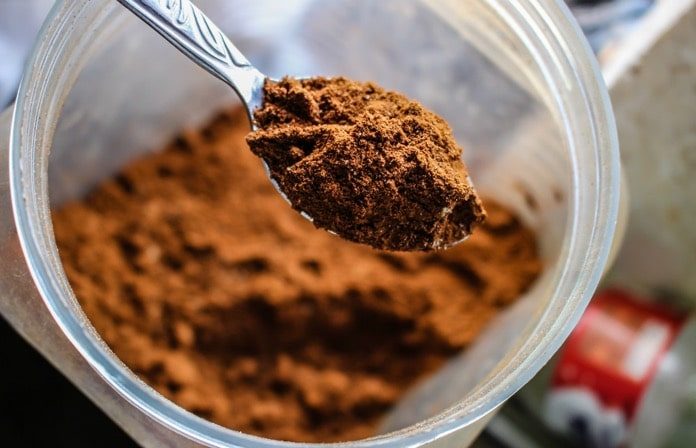Protein supplements are a useful nutrition aid, but not all protein supplements are alike. Here, we discuss five important facts about protein supplements based on the latest findings in research.
Protein supplements have become a popular part of weight loss and nutrition programs. Protein is necessary for the body to build muscle. Instead of simply tracking calories, fitness advocates track macronutrients to determine the proper amount of carbohydrates, fat, and protein needed to lose weight.
Many people find they do not consume enough protein and have turned to protein supplements to reach their target. Protein supplements are in powder form and are added to shakes to meet dietary needs and weight loss goals. However, not all protein supplements are created equally.
Here are five important facts about protein supplements.
1. Whey proteins effectively build muscle
Protein supplements come from different sources, and one of the most common is whey, a byproduct of cheese manufacture. Native whey has been touted as a “cleaner” form of whey protein over natural whey. However, research has shown that native whey and regular whey achieve the same results for muscle growth.
2. High-protein breakfasts reduce blood sugar
Adding a protein supplement to your breakfast is a good way to lower blood sugar levels and to feel full longer. A recent study found that high-protein breakfasts allow the full feeling to last until after lunch. The protein supplement aids in slowing carbohydrate digestion, causing that fuller feeling.
3. Manufacturing and storage methods of protein supplements matter
It is likely that most consumers do not consider the manufacturing and storage methods used for their protein supplements. However, research has shown that heat treatment of protein during manufacture and storage does affect its final nutritional value. Lower carbohydrate values on the label typically mean less damage during production and higher protein content.
4. Protein supplements at bedtime can be more effective for building muscle
Studies have shown that drinking a protein supplement shake at bedtime is an effective way to build muscle. A high-protein shake and exercise before bed result in even more muscle. The protein is digested during sleep and helps the body to stimulate muscle growth.
5. Protein supplements do not prevent muscle loss when inactive
For adults confined to bed rest or hospitalized for long periods of time, a study found that whey protein supplements can help in recovery when patients are able to begin an exercise regimen. However, the study found that protein supplements for these individuals did not prevent muscle loss during inactivity.
These facts show that protein supplements are not created equally. Protein supplements can be an effective tool in a weight loss and diet program. However, there are limitations to their use and effectiveness, and for best results, they should only be used as part of a balanced, holistic health and wellness program.
Written by Rebecca K. Blankenship, B.Sc.
References:
- Hamarsland H, Nordengen A, Nyvik Aas S et al. Native whey protein with high levels of leucine results in similar post-exercise muscular anabolic responses as regular whey protein: a randomized controlled trial. J Int Soc Sports Nutr. 2017;14(1). doi:10.1186/s12970-017-0202-y
- Kung B, Anderson G, Paré S et al. Effect of milk protein intake and casein-to-whey ratio in breakfast meals on postprandial glucose, satiety ratings, and subsequent meal intake. J Dairy Sci. 2018;101(10):8688-8701. doi:10.3168/jds.2018-14419
- Sánchez-Oliver A, Contreras-Calderón J, Puya-Braza J, Guerra-Hernández E. Quality analysis of commercial protein powder supplements and relation to characteristics declared by manufacturer. LWT. 2018;97:100-108. doi:10.1016/j.lwt.2018.06.047
- Snijders T, Trommelen J, Kouw I, Holwerda A, Verdijk L, van Loon L. The Impact of Pre-sleep Protein Ingestion on the Skeletal Muscle Adaptive Response to Exercise in Humans: An Update. Front Nutr. 2019;6. doi:10.3389/fnut.2019.00017
- Oikawa S, McGlory C, D’Souza L et al. A randomized controlled trial of the impact of protein supplementation on leg lean mass and integrated muscle protein synthesis during inactivity and energy restriction in older persons. Am J Clin Nutr. 2018;108(5):1060-1068. doi:10.1093/ajcn/nqy193



